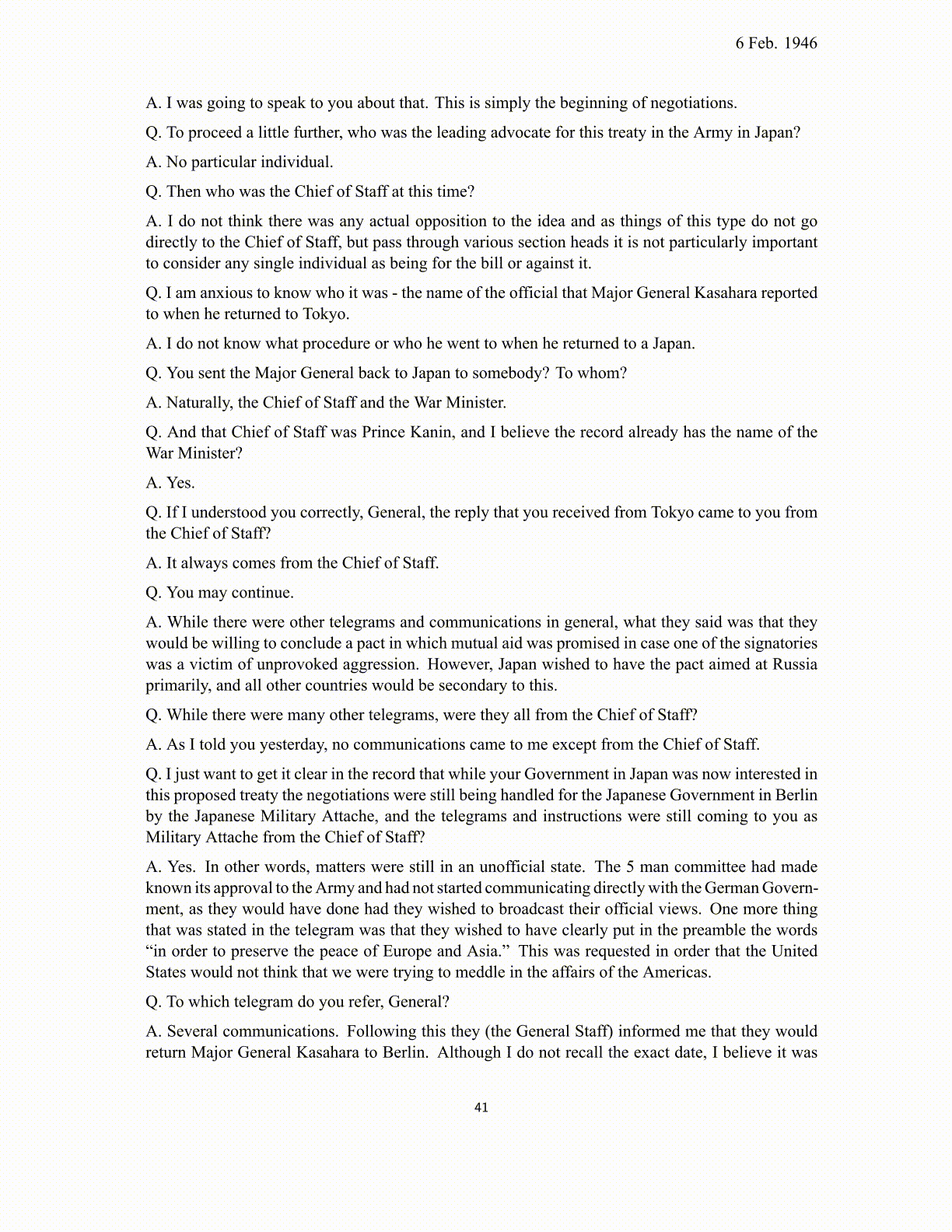
6 Feb. 1946 A. I was going to speak to you about that. This is simply the beginning of negotiations. Q. To proceed a little further, who was the leading advocate for this treaty in the Army in Japan? A. No particular individual. Q. Then who was the Chief of Staff at this time? A. I do not think there was any actual opposition to the idea and as things of this type do not go directly to the Chief of Staff, but pass through various section heads it is not particularly important to consider any single individual as being for the bill or against it. Q. I am anxious to know who it was - the name of the official that Major General Kasahara reported to when he returned to Tokyo. A. I do not know what procedure or who he went to when he returned to a Japan. Q. You sent the Major General back to Japan to somebody? To whom? A. Naturally, the Chief of Staff and the War Minister. Q. And that Chief of Staff was Prince Kanin, and I believe the record already has the name of the War Minister? A. Yes. Q. If I understood you correctly, General, the reply that you received from Tokyo came to you from the Chief of Staff? A. It always comes from the Chief of Staff. Q. You may continue. A. While there were other telegrams and communications in general, what they said was that they would be willing to conclude a pact in which mutual aid was promised in case one of the signatories was a victim of unprovoked aggression. However, Japan wished to have the pact aimed at Russia primarily, and all other countries would be secondary to this. Q. While there were many other telegrams, were they all from the Chief of Staff? A. As I told you yesterday, no communications came to me except from the Chief of Staff. Q. I just want to get it clear in the record that while your Government in Japan was now interested in this proposed treaty the negotiations were still being handled for the Japanese Government in Berlin by the Japanese Military Attache, and the telegrams and instructions were still coming to you as Military Attache from the Chief of Staff? A. Yes. In other words, matters were still in an unofficial state. The 5 man committee had made known its approval to the Army and had not started communicating directly with the German Govern- ment, as they would have done had they wished to broadcast their official views. One more thing that was stated in the telegram was that they wished to have clearly put in the preamble the words “in order to preserve the peace of Europe and Asia.” This was requested in order that the United States would not think that we were trying to meddle in the affairs of the Americas. Q. To which telegram do you refer, General? A. Several communications. Following this they (the General Staff) informed me that they would return Major General Kasahara to Berlin. Although I do not recall the exact date, I believe it was 41